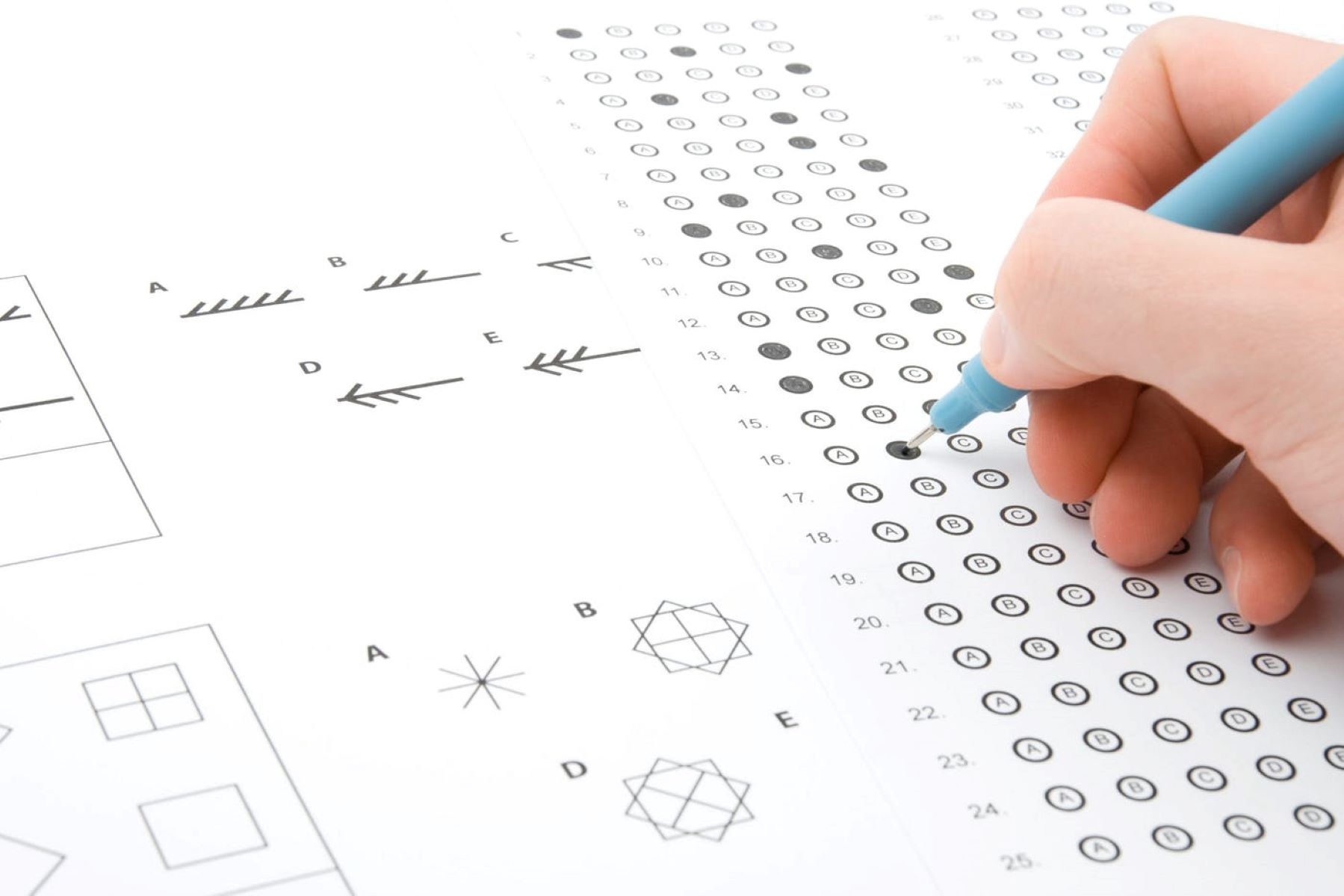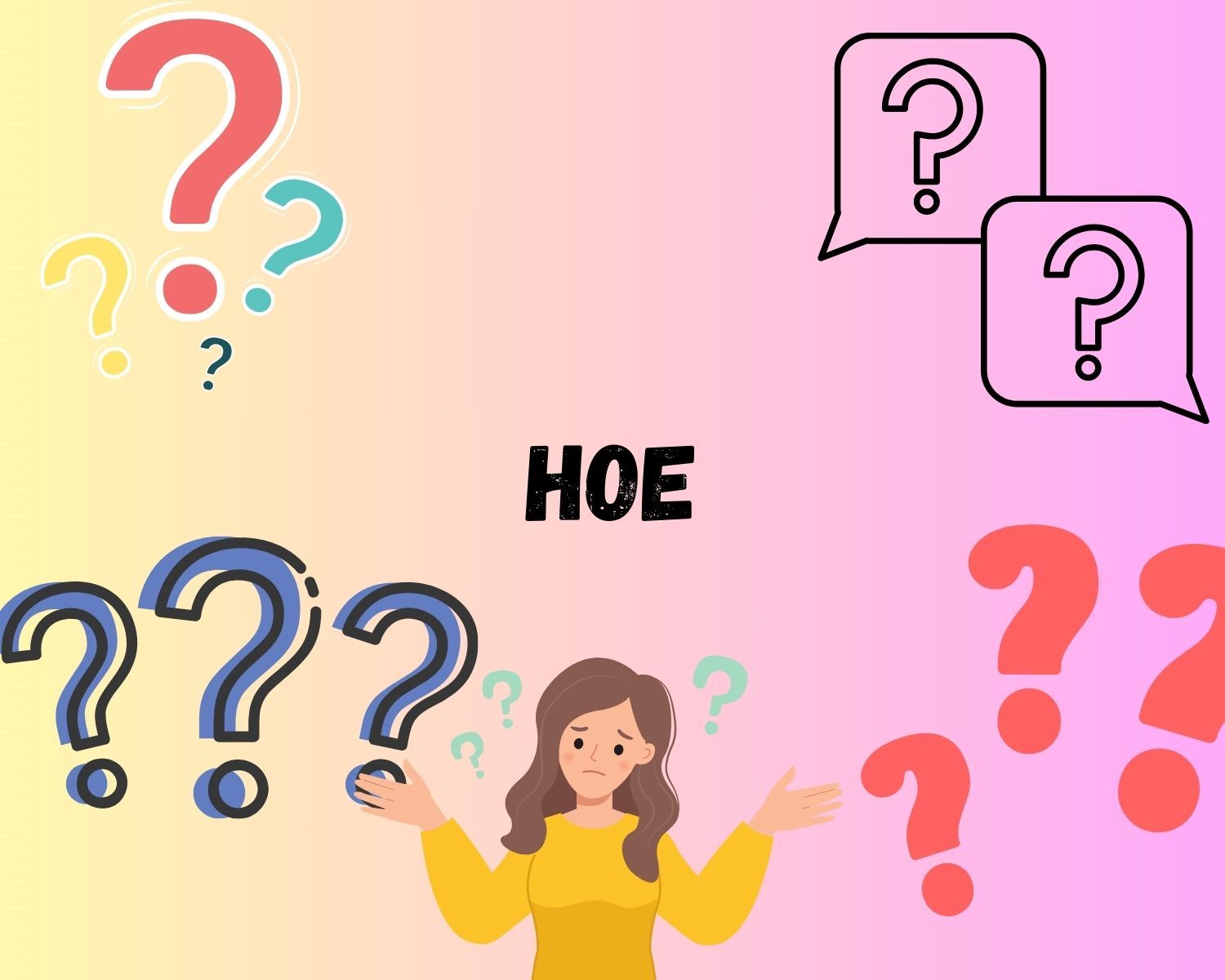

Science
The Truth About The Accuracy Of IQ Tests
Published: January 8, 2024
Discover the scientific truth about the accuracy of IQ tests and gain valuable insights into the world of intelligence testing. Explore the latest research and findings in the field of cognitive assessment.
(Many of the links in this article redirect to a specific reviewed product. Your purchase of these products through affiliate links helps to generate commission for Regretless.com, at no extra cost. Learn more)
Table of Contents
Introduction
IQ tests have long been a subject of fascination and debate, captivating the minds of individuals curious about their intellectual prowess. These tests, often heralded as indicators of cognitive ability, have infiltrated various facets of society, from education to employment. However, the accuracy and validity of IQ tests have been scrutinized, leading to a maelstrom of conflicting opinions and controversies.
As we delve into the enigmatic world of IQ testing, it becomes evident that these assessments are not merely academic curiosities, but instruments that wield significant influence over individuals' lives. The implications of IQ tests extend beyond the confines of a testing room, permeating into societal structures and shaping perceptions of intelligence. Yet, the veracity of these tests remains shrouded in uncertainty, prompting a critical examination of their efficacy and implications.
In this exploration, we will unravel the intricate tapestry of IQ testing, unraveling its historical roots, controversies, and the myriad factors that influence its accuracy. By delving into the depths of IQ testing, we aim to shed light on the complexities and nuances that underpin these assessments, ultimately striving to gain a comprehensive understanding of their place in the modern world.
Read more: The Truth About Illustrative DNA For Autosomal Testing: Accuracy And Better Alternatives Revealed!
What is an IQ Test?
An IQ test, short for Intelligence Quotient test, is a standardized assessment designed to measure an individual's cognitive abilities in relation to their peers. These tests are crafted to evaluate various aspects of intelligence, including logical reasoning, problem-solving skills, spatial recognition, and linguistic proficiency. The results are typically presented as a numerical score, which is then used to categorize individuals into different intelligence categories.
IQ tests are structured to encompass a diverse array of questions, covering verbal, mathematical, and visual reasoning. The questions are meticulously curated to gauge an individual's aptitude in different cognitive domains, offering a comprehensive overview of their intellectual capabilities.
The scoring of IQ tests is based on the concept of the "bell curve," where the majority of the population falls within the average range of intelligence, and fewer individuals fall into the categories of above-average or below-average intelligence. This scoring system allows for the comparison of an individual's performance against the broader population, providing insights into their relative cognitive strengths and weaknesses.
It is important to note that IQ tests are not infallible measures of intelligence. They offer a snapshot of an individual's cognitive abilities at a specific point in time and may not fully capture the breadth of their intellectual potential. Furthermore, cultural and socioeconomic factors can influence an individual's performance on these tests, raising questions about their universality and fairness.
Despite these limitations, IQ tests have been widely used in educational settings, employment screenings, and clinical assessments. They have played a pivotal role in identifying gifted individuals, guiding educational interventions, and informing decision-making processes in various professional fields.
In essence, an IQ test serves as a tool for quantifying certain aspects of cognitive ability, providing a framework for understanding and comparing individuals' intellectual capacities within a broader societal context. However, it is crucial to approach the interpretation of IQ test results with a nuanced understanding of their inherent complexities and limitations.
The History of IQ Testing
The origins of IQ testing can be traced back to the late 19th and early 20th centuries, an era marked by burgeoning interest in the measurement of human intelligence. One of the pioneering figures in this realm was Alfred Binet, a French psychologist who sought to devise a method for identifying children with special educational needs. In 1905, Binet and his collaborator, Theodore Simon, developed the first modern intelligence test, known as the Binet-Simon Scale. This groundbreaking assessment aimed to quantify children's cognitive abilities and identify those who required additional educational support.
The Binet-Simon Scale revolutionized the field of psychological assessment, paving the way for the development of standardized intelligence tests. In 1916, Lewis Terman, an American psychologist, adapted the Binet-Simon Scale to create the Stanford-Binet Intelligence Scales, which garnered widespread acclaim and became a cornerstone of IQ testing in the United States. This marked the beginning of a global proliferation of intelligence tests, each tailored to different cultural and linguistic contexts.
The concept of the Intelligence Quotient, or IQ, was introduced by William Stern, a German psychologist, in 1912. Stern's IQ formula, calculated as the ratio of mental age to chronological age multiplied by 100, provided a numerical representation of an individual's intelligence relative to their age group. This innovation laid the groundwork for the standardization of IQ tests and the interpretation of intelligence scores.
Throughout the 20th century, IQ testing gained prominence in various spheres, including education, psychology, and public policy. These tests were utilized to identify individuals with intellectual disabilities, assess students' academic potential, and inform personnel selection in the military and industry. The widespread adoption of IQ tests also sparked debates about the implications of intelligence measurement and the potential for bias in testing methodologies.
The historical trajectory of IQ testing is intertwined with societal shifts and advancements in psychology and psychometrics. Over time, IQ tests have evolved to encompass a broader array of cognitive domains and have been revised to mitigate cultural biases. Despite their evolution, IQ tests continue to evoke discussions about the nature of intelligence and the ethical considerations surrounding their application.
The history of IQ testing reflects a complex interplay of scientific innovation, social needs, and ethical dilemmas. It underscores the enduring quest to quantify and understand human intelligence while prompting critical reflections on the implications of intelligence assessment in diverse contexts.
The Controversy Surrounding IQ Tests
The realm of IQ testing is ensconced in a maelstrom of controversy, with fervent debates and divergent viewpoints shaping the discourse surrounding these assessments. At the heart of the controversy lies a confluence of ethical, social, and scientific concerns that have ignited impassioned discussions about the validity and implications of IQ tests.
One of the primary sources of contention revolves around the perceived biases inherent in IQ tests. Critics argue that these assessments may be culturally and linguistically biased, potentially disadvantaging individuals from diverse backgrounds. The reliance on specific language, cultural references, and educational experiences in test questions has raised questions about the equitable application of IQ tests across different demographic groups. This has led to concerns about the potential reinforcement of societal inequalities and the underrepresentation of certain communities in the realm of intelligence assessment.
Furthermore, the deterministic implications of IQ scores have sparked apprehension among scholars and advocates. The notion that IQ tests encapsulate an individual's innate, unchangeable intelligence has been challenged, with proponents highlighting the dynamic nature of human cognition and the influence of environmental factors on intellectual development. The fear of stigmatization and the perpetuation of fixed intelligence stereotypes has underscored the ethical dimensions of IQ testing, prompting calls for a more holistic understanding of intelligence that transcends numerical scores.
The use of IQ tests in educational settings has also been a focal point of controversy. Critics argue that these assessments may oversimplify the complexities of human intelligence and inadequately capture the multifaceted talents and potential of students. The potential for IQ tests to shape educational trajectories and perpetuate narrow definitions of academic success has elicited concerns about their impact on students' self-esteem and educational opportunities.
Moreover, the intersection of IQ testing with issues of diversity, inclusion, and social justice has catalyzed critical reflections on the broader implications of intelligence assessment. The ethical considerations surrounding the use of IQ tests in employment, academic admissions, and public policy have prompted calls for greater transparency, accountability, and sensitivity to the diverse experiences and abilities of individuals.
Amidst these controversies, it becomes evident that IQ testing is not merely a scientific endeavor but a societal phenomenon fraught with profound implications. The debates surrounding IQ tests underscore the imperative of critically evaluating their utility, fairness, and societal ramifications, while striving to foster a more inclusive and nuanced understanding of human intelligence.
Factors Affecting IQ Test Accuracy
The accuracy of IQ tests is influenced by a myriad of factors that intricately shape the outcomes and interpretations of these assessments. Understanding these factors is essential for gaining insight into the nuances of intelligence measurement and its broader implications.
-
Cultural and Linguistic Bias: IQ tests are often constructed within specific cultural and linguistic contexts, potentially disadvantaging individuals from diverse backgrounds. The inclusion of language-dependent or culturally specific content in test questions can inadvertently favor certain demographic groups, leading to disparities in test performance. Addressing cultural and linguistic biases is crucial for ensuring the equitable application of IQ tests across diverse populations.
-
Socioeconomic Factors: The socioeconomic environment in which individuals are raised can significantly impact their access to educational resources, cognitive stimulation, and nutritional support, all of which can influence their performance on IQ tests. Disparities in socioeconomic status may contribute to variations in test scores, highlighting the need to consider the broader social context when interpreting intelligence assessments.
-
Educational Opportunities: Varied educational experiences and instructional methods can shape individuals' cognitive development and problem-solving skills, ultimately influencing their performance on IQ tests. Disparities in educational quality and access to enriching learning environments may contribute to divergent test outcomes, emphasizing the interconnectedness of education and intelligence assessment.
-
Cognitive Diversity: Human intelligence is multifaceted, encompassing a spectrum of cognitive abilities and talents. Traditional IQ tests may not fully capture the breadth of individual cognitive diversity, potentially overlooking unconventional forms of intelligence such as creative problem-solving, emotional intelligence, and practical skills. Recognizing and embracing cognitive diversity is essential for fostering a comprehensive understanding of human intelligence.
-
Testing Environment: The conditions in which IQ tests are administered can impact individuals' performance. Factors such as test anxiety, distractions, and unfamiliar testing environments may influence test scores, underscoring the importance of creating conducive and supportive testing conditions to ensure accurate assessments.
-
Neurological and Developmental Factors: Neurological differences and developmental variations among individuals can influence their cognitive functioning and problem-solving abilities. Conditions such as ADHD, dyslexia, and autism spectrum disorders may impact test performance, necessitating considerations for diverse cognitive profiles in intelligence assessment.
-
Motivation and Effort: Individual motivation and effort exerted during IQ testing can affect the accuracy of test results. Factors such as intrinsic motivation, external incentives, and perceived relevance of the test may influence individuals' engagement and performance, underscoring the dynamic nature of intelligence assessment.
Understanding these multifaceted factors is pivotal for contextualizing the outcomes of IQ tests and fostering a more nuanced appreciation of human intelligence. By acknowledging the diverse influences on intelligence assessment, we can strive to create more inclusive and equitable approaches to measuring cognitive abilities.
Read more: How To Test A Starter
The Validity of IQ Tests
The validity of IQ tests, a cornerstone of their credibility and utility, has been a subject of extensive scrutiny and deliberation within the realms of psychology, education, and public discourse. Validity, in the context of IQ testing, pertains to the degree to which these assessments measure what they purport to measure – human intelligence. This multifaceted concept encompasses various dimensions that collectively contribute to the overall trustworthiness and accuracy of IQ tests.
One facet of validity is content validity, which pertains to the extent to which the content of an IQ test comprehensively represents the domain of human intelligence. Test developers strive to ensure that the questions and tasks included in IQ tests encapsulate a diverse array of cognitive abilities, ranging from verbal and mathematical reasoning to spatial visualization and problem-solving skills. By encompassing a broad spectrum of cognitive domains, IQ tests aim to provide a holistic portrayal of an individual's intellectual capacities.
Construct validity, another pivotal dimension, delves into the underlying theoretical constructs and psychological attributes that IQ tests purportedly measure. It entails establishing the alignment between the theoretical framework of intelligence and the actual measurement provided by IQ tests. Psychometricians and researchers endeavor to validate the theoretical underpinnings of intelligence through empirical evidence, ensuring that IQ tests capture the essence of cognitive prowess in a manner consistent with established psychological theories.
Furthermore, criterion-related validity elucidates the extent to which IQ test scores correlate with external criteria that are indicative of intelligence, such as academic achievement, problem-solving acumen, and occupational success. By demonstrating meaningful associations with real-world outcomes, IQ tests can substantiate their validity as predictors of cognitive aptitude and academic or professional performance.
The ongoing quest for cultural fairness and equity in intelligence assessment has also prompted discussions about the cross-cultural validity of IQ tests. Ensuring that these assessments are applicable and unbiased across diverse cultural and linguistic contexts is paramount for upholding their validity and relevance in a globalized society.
In essence, the validity of IQ tests hinges on a comprehensive evaluation of their content, theoretical foundations, predictive power, and cultural inclusivity. By continually refining and validating these assessments through empirical research and ethical considerations, psychologists and test developers strive to fortify the validity of IQ tests, bolstering their role as valuable tools for understanding and assessing human intelligence.
The Future of IQ Testing
The landscape of IQ testing is poised for dynamic evolution, propelled by advancements in technology, psychometric methodologies, and interdisciplinary collaborations. As we peer into the horizon of intelligence assessment, several compelling trajectories emerge, offering glimpses of the future of IQ testing.
One pivotal avenue of progress lies in the integration of cutting-edge technologies, such as artificial intelligence and machine learning, into the development and administration of IQ tests. These technologies hold the potential to revolutionize the assessment process, enabling the creation of adaptive tests that dynamically adjust the difficulty of questions based on an individual's responses. This personalized approach can yield more precise and nuanced evaluations of cognitive abilities, transcending the limitations of traditional static testing formats.
Furthermore, the burgeoning field of cognitive neuroscience is poised to enrich our understanding of human intelligence, offering insights into the neural underpinnings of cognitive processes. The fusion of neuroscience with psychometrics holds promise for elucidating the biological substrates of intelligence and informing the design of neurologically-informed IQ assessments. This interdisciplinary synergy may pave the way for neurocognitive assessments that provide a deeper understanding of individuals' cognitive profiles, transcending the confines of traditional psychometric paradigms.
The quest for cultural fairness and inclusivity in intelligence assessment is also set to shape the future of IQ testing. Efforts to mitigate cultural biases and ensure the cross-cultural applicability of IQ tests are pivotal for fostering equitable and globally relevant assessments. Collaborative endeavors across diverse cultural and linguistic contexts are poised to enrich the diversity of intelligence measures, reflecting the multifaceted nature of human cognition across different societal milieus.
Moreover, the future of IQ testing is intertwined with the imperative of embracing cognitive diversity. Recognizing and valuing diverse forms of intelligence, including creative, emotional, and practical aptitudes, will likely catalyze the development of comprehensive assessments that go beyond traditional measures of cognitive abilities. This paradigm shift may herald a more inclusive and holistic approach to intelligence assessment, acknowledging the richness of human cognitive potential.
In essence, the future of IQ testing is imbued with the promise of innovation, inclusivity, and multidisciplinary synergy. By harnessing emerging technologies, embracing cognitive diversity, and fostering cultural equity, the trajectory of intelligence assessment is poised to transcend conventional boundaries, offering a more nuanced and comprehensive understanding of human intelligence.
Conclusion
In conclusion, the enigmatic realm of IQ testing encapsulates a tapestry of historical evolution, controversies, and multifaceted influences that converge to shape the landscape of intelligence assessment. The journey through the intricacies of IQ testing unveils a complex interplay of scientific innovation, ethical considerations, and societal implications, underscoring the profound impact of these assessments on individuals and communities.
As we navigate the complexities of IQ testing, it becomes evident that these assessments are not static entities but dynamic reflections of human cognition within ever-evolving societal contexts. The controversies surrounding IQ tests, ranging from cultural biases to deterministic implications, underscore the imperative of critically evaluating their utility and ethical dimensions. These debates prompt a critical reevaluation of the role of IQ tests in shaping educational trajectories, employment opportunities, and societal perceptions of intelligence.
The multifaceted factors influencing IQ test accuracy, including cultural biases, socioeconomic disparities, and cognitive diversity, highlight the intricate web of influences that converge to shape individuals' performance on these assessments. Understanding these factors is pivotal for fostering a more nuanced and inclusive approach to intelligence assessment, transcending traditional paradigms of cognitive measurement.
Moreover, the future of IQ testing beckons with promises of innovation, inclusivity, and multidisciplinary synergy. Embracing emerging technologies, fostering cultural equity, and valuing cognitive diversity are poised to reshape the trajectory of intelligence assessment, offering a more comprehensive and equitable understanding of human intelligence.
In essence, the enigma of IQ testing beckons us to embark on a journey of introspection, innovation, and inclusivity. By navigating the complexities and controversies surrounding IQ tests, we can strive to foster a more nuanced, equitable, and holistic approach to intelligence assessment, transcending conventional boundaries and embracing the diverse tapestry of human cognition.














